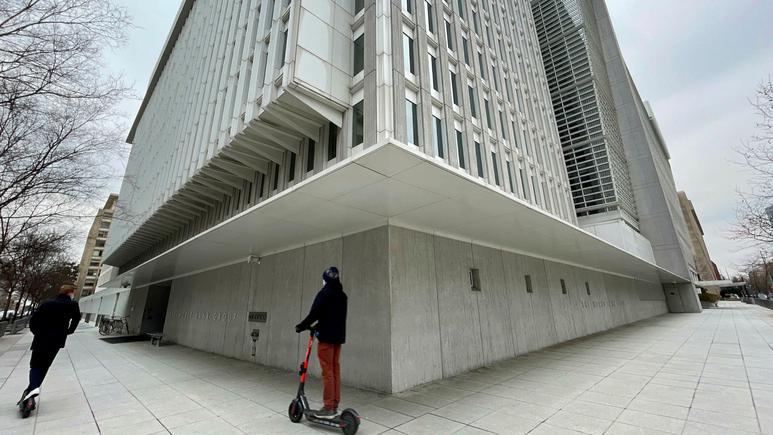US guidance for multilateral development banks leaves some ...
23/01/2022 By RuneLite
The US Treasury Department rolled out a new guidance for multilateral development bank (MDB) investments that prioritizes clean energy investments over fossil fuels but leaves some room for midstream and downstream natural gas projects.
Not registered?
Receive daily email alerts, subscriber notes & personalize your experience.
Register Now
The added detail comes as the US approach to overseas finance of natural gas infrastructure has emerged as a battleground among those seeking to shape the future energy resource mix. Some environmental groups have urged the US to help set the tone internationally by advocating sharper cutoff for fossil fuel investments, while US LNG industry groups have emphasized the continued importance of gas as an alternative for developing countries.
The Treasury Department guidance outlining the US position for MDB staff released Aug. 16 opposes direct investments in oil-based energy projects and new coal-based projects, but it allows for "narrow support for natural gas."
While opposing upstream gas projects, the guidance says the US will support midstream and downstream gas projects in poor and fragile countries or small island developing states, under certain conditions.
One important condition is having an alternatives analysis that shows there is no economically and technically feasible clean energy alternative to a gas project. A project would also need to have a positive impact on energy security, energy access or development and support goals of the Paris climate agreement.
The guidance also is open to carbon capture, use and storage, and methane abatement projects.
"The United States takes a leadership role with the new Treasury guidance that advocates for MDB staff to assess options for clean energy, innovation and energy efficiency, and to only consider fossil fuels if less carbon-intensive options unfeasible," according to a Treasury press release.
Concern over impacts

Charles Riedl of the US LNG trade group Center for Liquefied Natural Gas said Aug. 17 the impact of the narrowed scope for gas investment remains uncertain.
"How much of this new criteria potentially could serve as a deterrent or slow that process for a country that is looking to add natural gas infrastructure or use US gas is concerning from our perspective," he said in an interview. "It puts the onus on us as a trade association and as an industry to continue to work with Treasury and highlight the role that US natural gas could play "in some emerging markets in helping tackle energy poverty and energy security concerns," he added.
Another US trade group, LNG Allies, welcomed the continued recognition of gas while urging flexibility in the implementation of the guidance.
"Since the main alternative to natural gas for many of these countries is coal-fired power — which China remains eager to finance — we urge Treasury and the multilateral development banks to show maximum flexibility to support gas power projects and LNG infrastructure in developing countries to avoid dirtier outcomes," the group said in a statement.
Push for clearer signal
Some environmental groups worried the US missed a chance to take a clear stance against fossil fuels and left too much wiggle room in the conditions for financing gas.
"When the US and other Nordic [countries] came out against coal finance, that kicked off a whole lot of things which led to a decade later, ... essentially, almost no public support for coal," said Collin Rees, a senior campaigner at Oil Change International, in an interview.
"The US has a large sway at the MDBs, and so it's critical that President Biden and Secretary Yellen add clear and strict details to their proposed gas finance conditions immediately," said Bronwen Tucker, a research analyst with the same group, said in a statement. "Otherwise up to 40% of the total fossil fuel finance from the MDBs where the US is a member could continue," equating to $1.6 billion a year in gas investments. According to the group's analysis, countries that may still be eligible under the revised guidance that have received MDB support for a gas project over the last three years include: Afghanistan, Armenia, Azerbaijan, Bangladesh, Belize, Cote d'Ivoire, Iraq, Mozambique, Myanmar, Nigeria, Senegal, Tajikistan and Uzbekistan.
The new guidance stems from Biden's first executive order on climate directing Treasury and other agencies to "identify steps through which the United States can promote ending international financing of carbon-intensive fossil fuel-based energy while simultaneously advancing sustainable development and a green recovery."
According to Fred Hutchison of LNG Allies, the bigger fight ahead is over the approach that the US International Finance Corp. and US Agency for International Development will take, because those agencies can reach a much broader swath of countries, such as China, Thailand and Vietnam, he said.
"If anything, today's action by Treasury is a signal as to where the administration may be headed on much more important issues of US finance for gas infrastructure," he said.